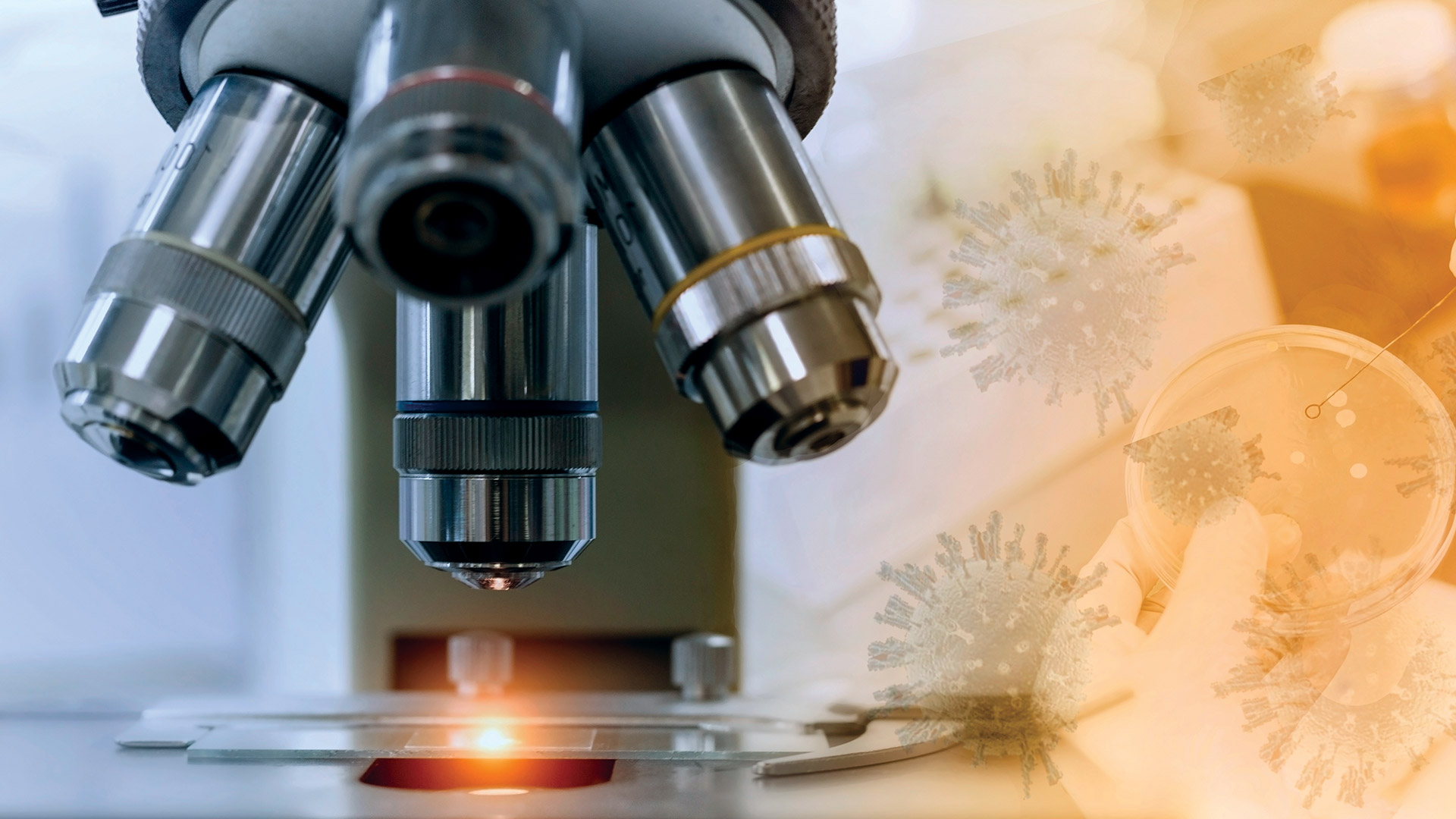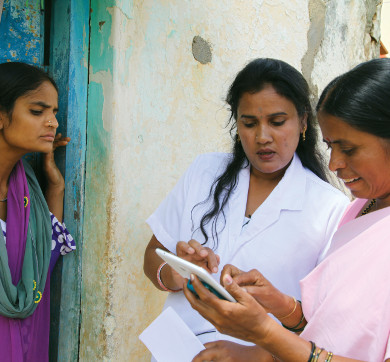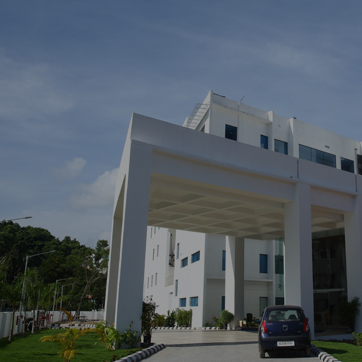September 2021 | 1053 words | 4-minute read
Every crisis brings out unexpected heroes with solutions that have a far-reaching impact on society. As we battle for survival in the world of Covid, accelerated drug discovery made possible by mRNA (messenger ribonucleic acid) and large-scale digitisation in healthcare have emerged as saviours today.
Katalin Kariko, a Hungarian immunologist, defied all odds in the early years of her career to keep her mRNA research alive and, as a result, gave the world one of the greatest immunology discoveries. Today, mRNA-based vaccines are the primary weapon in our fight against the global pandemic and its success on Covid-19 has prompted others to pursue it as a treatment for a variety of diseases.
The success of new age medicine and immunotherapy such as mRNA is based on large-scale digitisation of medical data, which has accelerated over the last decade. Scientists and immunologists all over the world have benefitted from standardisation of methods and procedures, and are now able to cooperate by exchanging genetic information of SARS-CoV-2 strains in order to cope with its rapidly mutating variants. The power of Big Data and analytics has been evident in this pandemic.
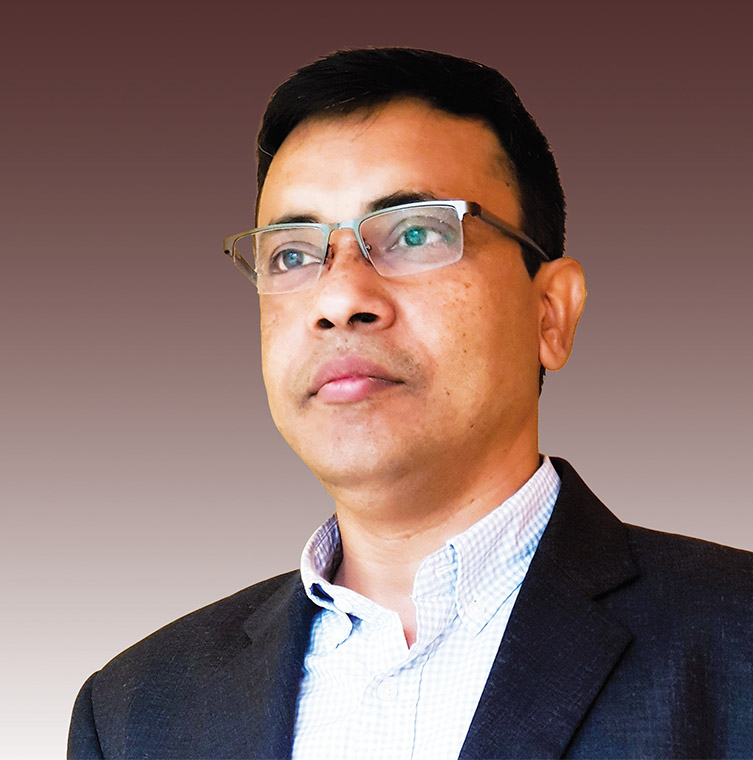
Genomics and mRNA-based vaccine research have become highly efficient thanks to a data-centric collaborative approach, which could speed up the process of developing a life-saving vaccine and produce it in record time. As of December 2020, well over 100,000 whole-genome sequence data and associated data have been collected and shared to facilitate in finding the cure. Advanced analytics and technologies enabled by artificial intelligence (AI) have made a wealth of life-saving data and therapeutic protocols accessible to the most vulnerable people at the right time.
Digital transformation in healthcare
Let’s take a brief look at two major aspects of these change agents in healthcare’s digital transformation: connected healthcare and data management. Although innovations such as telehealth, remote patient monitoring and m-Health continue to grow at an exponential rate, healthcare data management, interoperability and efficient usage remain critical for enhancing delivery quality and reliability while optimally using resources for effective patient care.
AI-assisted diagnosis: AI is empowering a multitude of diagnostics and personal care products, thereby freeing up clinicians’ time and resources and enabling them to focus on more acute areas where needed. It is projected that 1.5 million to 2 million hours a year will be freed up due to AI-assisted diagnosis, resulting in significant cost savings and an improvement in the accuracy of diagnosis and performance across the board. However, developing an AI-based clinical decision support system requires a deep understanding of both clinical and non-clinical aspects of the system.
Tata Elxsi has invested in people, processes and infrastructure to support AI product lifecycle based on Good Machine Learning Practice (GMLP) that will determine how data needs to be curated and statistics needs to be interpreted. This aligns with Good Clinical Practices (GCP) and Good Laboratory Practices (GLP) required to build robust clinical decision support systems.
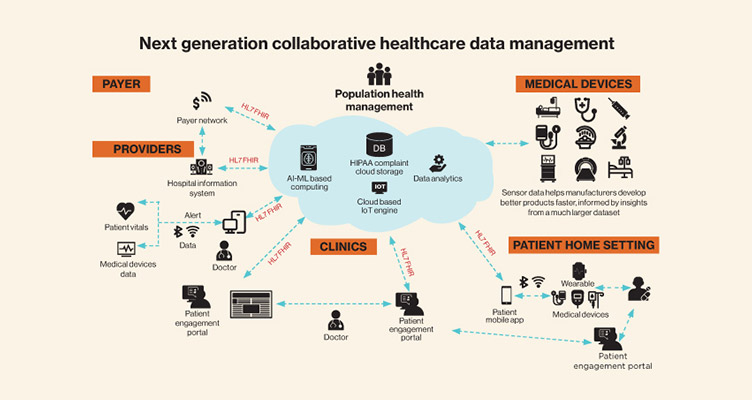
Consumer-centric integrated health system: The healthcare industry cannot afford to remain fragmented and isolated, as is evident from the mRNA-based vaccine programme. The key is to securely integrate interoperable healthcare systems and research, for which several collaborative networks and frameworks are being developed. Tata Elxsi is implementing secure open systems to enable sharing of data within a hospital, across hospital networks, and even countries.
New channels of care delivery: The use of telemedicine systems has increased dramatically (by more than 50%) around the world. Collaboration networks, linking patients and caregivers through time zones and geographies, are changing the way people receive first care response. Robotic and remotely operated system-based zero-touch or low-touch triaging can improve the quality of treatment while reducing the need for, and even the length of, hospitalisation. With the addition of a few more sensors, smartphone apps can potentially become a ‘lab-on-the-go’, allowing patients to receive care 24 hours a day, seven days a week from the comfort of their homes. Tata Elxsi’s expertise in developing medical devices and wireless communication technologies, for example, is helping customers in commercialising real-time connected care services.
Increased automation: The healthcare industry is investing heavily in automation; the advantages can be seen in workload reduction while dealing with the pandemic. Whether it is inpatient treatment during a hospital stay, clinicians running procedures and administering protocols, or usage of resources and assets by pharmacists and administrators, every element of the workflow is affected by automation. Tata Elxsi has been consulting global healthcare businesses to identify, optimise and automate critical clinical and non-clinical workflows for improved efficiency and overall outcome.
It has been at the vanguard in collaborating with major healthcare companies to reimagine the future of healthcare. The company is honing its digital health platform over the last few years to address crucial areas of real-time telemedicine including virtual consultations, remote patient monitoring, m-Health and analytics. The value proposition of our scalable platform is its ability to support industry-leading third-party components for rapid prototyping and solution acceleration. The platform is compliant to regulatory requirements prescribed by the Health Insurance Portability and Accountability Act (HIPAA) of 1996, General Data Protection Regulation ([EU] 2016/679 [GDPR]), as well as the interoperability requirements of Health Level Seven International (HL7) and Fast Healthcare Interoperability Resources (FHIR) specifications.
Some examples of successful deployment include a real-time interactive platform that integrates with hospital IT systems and enables seamless video consultation and streamlined operational services for healthcare providers. Another of our scalable systems can gather and transmit data from over 40 different sensors, including wearable, medical devices and ambient sensors to care centres, allowing for timely intervention in assisted living scenarios. Furthermore, our work in m-Health for wellness monitoring and chronic disease management, and AI-based clinical decision support systems are helping clinicians make informed decisions for better clinical outcomes.
Today, digital health solutions developed by Tata Elxsi are being used to manage the health of thousands of people across the United States, Europe and Asia-Pacific countries.
As the next-generation technologies continue to converge, Tata Elxsi is well positioned with its unique combination of insight-led design, industry experience, data management, digitisation and technology expertise for the healthcare sector. At Tata Elxsi, we continue to push the boundary of digital health and help healthcare companies build integrated products and interoperable systems that deliver exceptional end-user experiences and excellent clinical outcomes.
The author Biswajit Biswas is the chief data scientist at Tata Elxsi.


